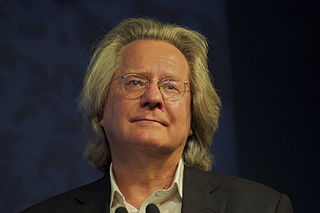A Quote by Robert M. Price
I wonder how appropriate it is to try to 'argue someone into the kingdom.' Many apologists hotly deny any such charge, but I don't believe them. The tenor of almost all apologetics literature makes it plain that this is their intent.
Related Quotes
There are too many Republicans that believe it, too. And is it any wonder that they have acted on occasion like defeated, hopeless waifs? I mean, they read and absorb everything the Drive-By Media says, and they believe it, too. And of course the Drive-By Media is routinely making fun of them and talking how hopeless they are and what a distant minority they are - and to be shocked and stunned by this, you wonder if any lessons have been learned.
Religious apologists complain bitterly that atheists and secularists are aggressive and hostile in their criticism of them. I always say: look, when you guys were in charge, you didn't argue with us, you just burnt us at the stake. Now what we're doing is, we're presenting you with some arguments and some challenging questions, and you complain.
Our chaotic economic situation has convinced so many of our young people that there is no room for them. They become uncertain andrestless and morbid; they grab at false promises, embrace false gods and judge things by treacherous values. Their insecurity makes them believe that tomorrow doesn't matter and the ineffectualness of their lives makes them deny the ideals which we of an older generation acknowledged.
I also knew that if people have a position on something and you try to argue them into changing it, you’re going to strengthen that position. If you want to change people’s ideas, you shouldn’t try to convince them intellectually. What you need to do is get them into a situation where they’ll have to act on ideas not argue about them.
As for literature – to introduce children to literature is to install them in a very rich and glorious kingdom, to bring a continual holiday to their doors, to lay before them a feast exquisitely served. But they must learn to know literature by being familiar with it from the very first. A child's intercourse must always be with good books, the best that we can find.





































